中國的改革需要對三中全會《決定》更廣泛的實施以及法治的進一步弘揚
中國歐盟商會:中國的改革需要對三中全會《決定》更廣泛的實施以及法治的進一步弘揚
European Union Chamber of Commerce in China: Broader Implementation of the Third Plenum Decision and Further Adherence to the Rule of Law is Needed for China’s Reforms
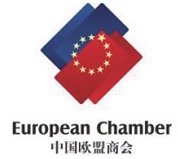 在僅僅兩年的執政時間裡,中國新一代領導人已經為改革打下了堅實的基礎。然而,既定方針的實施才是下一階段最關鍵的環節,同時實施起來也並非易事。中國歐盟商會於十一月五日發佈第十四版重要立場性檔——《歐盟企業在中國建議書2014/2015》,期望中國領導人堅定且緊湊地實施三中全會《決定》中的主要精神以避免發生經濟和社會危機,並使中國朝著更加可持續、開放以及公平的方向前進。
在僅僅兩年的執政時間裡,中國新一代領導人已經為改革打下了堅實的基礎。然而,既定方針的實施才是下一階段最關鍵的環節,同時實施起來也並非易事。中國歐盟商會於十一月五日發佈第十四版重要立場性檔——《歐盟企業在中國建議書2014/2015》,期望中國領導人堅定且緊湊地實施三中全會《決定》中的主要精神以避免發生經濟和社會危機,並使中國朝著更加可持續、開放以及公平的方向前進。
雖然過去十年的改革力度分散且有限,但是三中全會《決定》重點關注了中國在經濟和社會發展中日益增多的問題,也強調了中國向更公平,更具包容性社會轉型過程。堅定地實施《決定》中的方針不僅能重新平衡經濟結構,通過市場的決定性作用改善私營企業和外資企業所處的商業環境,而且能將環境和社會影響的重要性置於經濟增長之上,提升中國公民的生活品質。
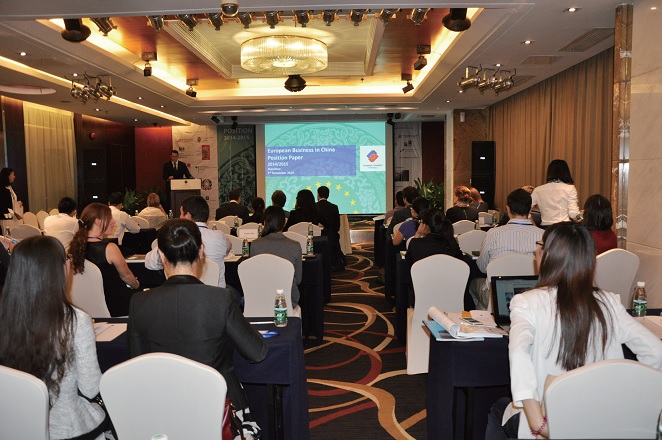
中國歐盟商會主席伍德克表示,“今天的中國已經到了發展的十字路口。如果有足夠的基於服務、增值、創新和高效的增長動力,中國就有足夠的能力在此後的多年中保持中等程度的經濟增長。如果要行業自身產生上述動力,就需要有先進、成熟而富有創造性的經濟模式。而這一經濟模式只有在功能完善的市場經濟體制下才有可能出現。在《決定》中特意強調市場的決定性作用,表明中國領導人重拾了中國上世紀九十年代的改革熱情。改革的基礎已經打下,現在正是進行具體實施的時候了, 中國領導人必須推動商業環境的全方位發展。歐洲企業相信中國共產黨會言出必行,一個與改革呼聲相匹配的更加開放的市場就是進程的最好證明。這意味著必須避免《決定》中的內在矛盾, 例如繼續允許國企的主導地位以及持續的保護性措施。上述改變如能實現,中國將收穫不亞於加入世界貿易組織時的紅利。”歐盟商會主席進一步表示,“在中國艱難的商業環境和持續的區別性對待影響下,歐洲公司調低了對中國市場的商業預期,也縮減了投資計畫。《決定》提升了他們對中國的信心和期待。如果這些期待落空,也就是說在華的歐洲公司平等競爭的環境沒有辦法得到改善的話,企業不僅會質疑他們對中國的承諾,擔心在中國發展的能力,並對整個市場產生信心缺失。正如決定中指出,只有中國創造了給市場充分發揮空間的商業環境後,持續的經濟增長才能實現。
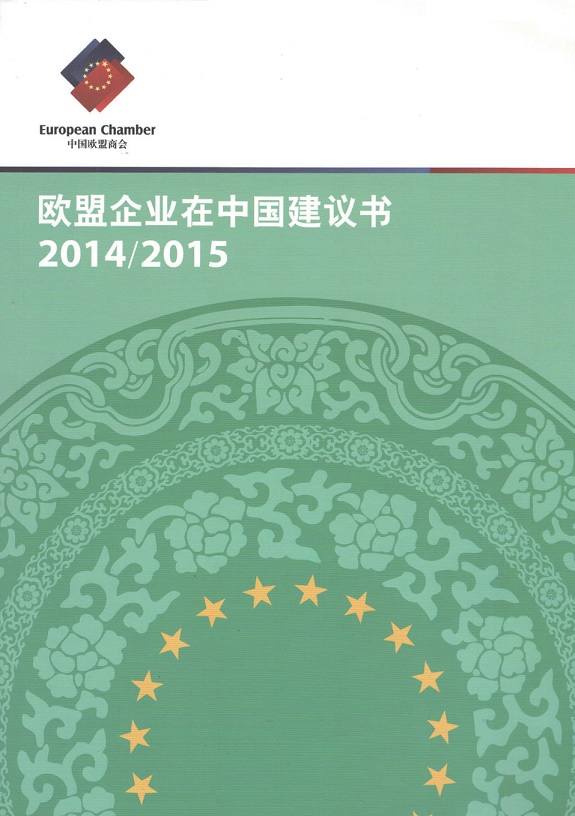
關於《歐盟企業在中國建議書2014/2015》
《歐盟企業在中國建議書》是中國歐盟商會的首要年度出版物。第十四期《建議書》對中國政策制定者提出了八百多條建議,這些建議直接來源於中國歐盟商會一千八百名會員公司的專業知識。《建議書》由三十七個工作組分別經歷了六個月的意見徵詢過程最終編寫而成,覆蓋了二十八個縱向行業和九個橫向行業議題。
《歐盟企業在中國建議書》對中國政策制定者提出了廣泛和詳細的建議,勾畫了改善中國商業環境的藍圖。這些建議涉及商業環境管理和運營的改善,同時亦指明了中國可從放寬外資企業市場准入中獲益的重點領域。
在未來的一年裡,《歐盟企業在中國建議書》將由商會呈遞給中國有關政府部門的部長級和工作層面官員,致力於探討共同合作、推動建議實施的可能性。另一方面,本《建議書》亦會被呈遞至歐盟的政府部門,包括在今年歐盟委員會領導人換屆後呈遞給歐盟各機構,以及在九月中旬的歐盟商會年度歐洲之行期間呈遞給各歐盟成員國。
---------------------------------------------------------------
European Union Chamber of Commerce in China: Broader Implementation of the Third Plenum Decision and Further Adherence to the Rule of Law is Needed for China’s Reforms
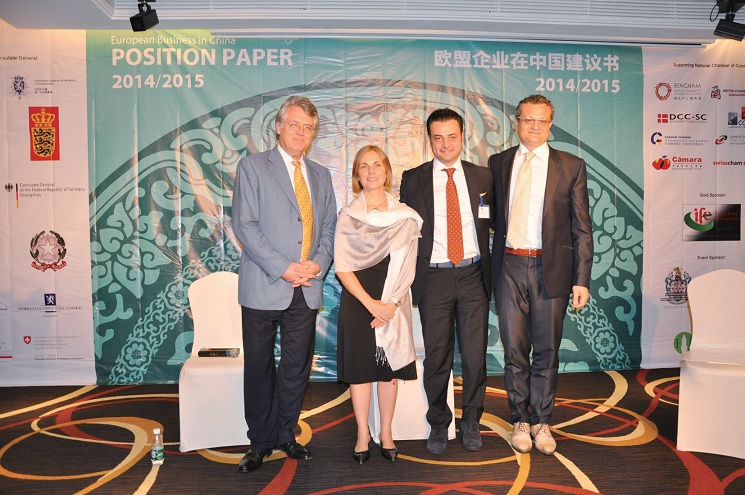
Within just two years of taking power, China’s leaders have laid bold groundwork for reforms, but implementation is crucial and many difficult steps lie ahead. China’s leadership must remain steadfast and urgently implement the primary tenets of the Third Plenum Decision to avert potential economic and societal crises and shift China onto a more sustainable, inclusive and fairer course, according to the European Union Chamber of Commerce in China, which launched the 14th edition of its primary advocacy document, the European Business in China Position Paper 2014/2015 on 5 November, 2014.
After a decade of limited and piecemeal reform, the Decision of the Third Plenum was welcomed by European industry as a framework to address China’s growing economic and societal issues and transition to a fairer system and from exclusive growth to inclusive participation. A resolute implementation of the Decision will not only help to rebalance the economy and improve the unfair business environment for private and foreign companies, it would also improve the quality of life of China’s citizens by placing greater emphasis on environmental and social impacts over pure economic growth.
European Chamber President Jörg Wuttke said, “China today stands at a crossroads. China has enough firepower to create sustained medium-levels of growth for many years to come if sustainable drivers of growth based around services, value-added, innovation and efficiency are fostered now. As it is industry that ultimately produces these drivers, the solution must lie within the creation of a business environment that cultivates advanced, adroit and creative outputs. This is only possible within a properly functioning market economy.”

Mr. Wuttke continued, “The decisive role earmarked for the market in the Decision shows that China’s leaders have recaptured some of the necessary reform zeal of the 1990s. The groundwork has been laid, but it’s now time that China’s leadership walks the talk across the full spectrum of the business environment. European industry is taking the Party by their word, but the proof will lie in whether the rhetoric for reform will be quickly matched by corresponding market opening and the creation of a true level playing field. This means that China’s leaders must avoid inherent contradictions within the Decision, such as continuing to afford the state sector a leading and dominant position, as well as continued protectionist inclinations. If this happens, China has the opportunity to put in place a process akin to a domestic WTO accession that can reap great dividends.”
The European Chamber President also stated, “Amidst difficult business headwinds and continued unfavourable treatment, European companies have been setting more modest expectations and revising down investment plans for China. The Decision has raised their hopes and expectations. If these hopes are dashed and they have to continue to operate in a discriminatory environment, not only would European firms likely temper their level of commitment to China and doubt their own ability to succeed, they would also doubt China’s ability to succeed. This is because sustained growth going forward can only be achieved if China creates the environment in which market forces can fully play out. While China has a strong track record of managing its past economic challenges with better results than many had predicted possible, no country is invulnerable to systemic crises.”
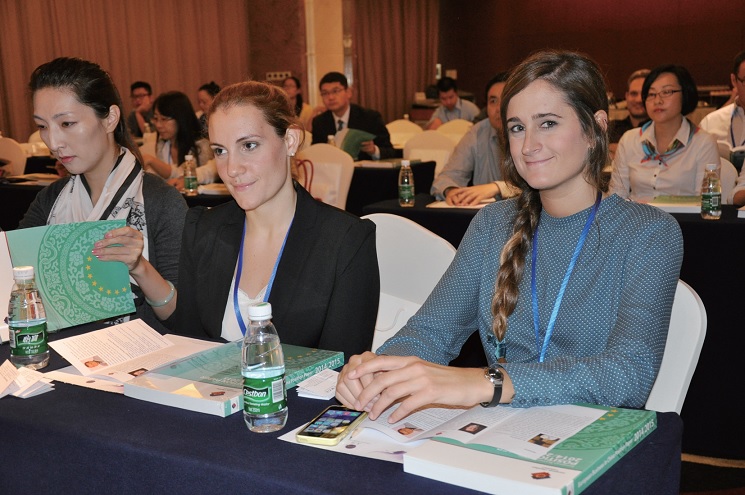
About the European Union Chamber of Commerce in China
The European Union Chamber of Commerce in China (European Chamber) was founded by 51 member companies on 19th October, 2000. The rationale for establishing the European Chamber was based on the need of the European Union and European companies to find a common voice across the various business sectors throughout China. The European Chamber has grown to more than 1,800 member companies and operates from seven chapters: Beijing, Nanjing, Pearl River Delta (Guangzhou and Shenzhen), Shanghai, Shenyang, Southwest China (Chengdu and Chongqing) and Tianjin. The European Chamber is recognised by the European Commission and the Chinese authorities as the official voice of European business in China. Its advocacy activities are maintained through the efforts of its 45 working groups and forums, and active participation in the legislative process.
About the European Business in China Position Paper 2014/2015
The European Business in China Position Paper (Position Paper) is the European Chamber’s primary annual publication. This 14th annual edition of the Position Paper offers Chinese policy-makers over 800 recommendations that draw directly from the knowledge and expertise of the European Chamber’s 1,800 member companies. The recommendations were formulated over a six-month consultative process by 37 separate working groups, covering 28 vertical industry sectors and nine horizontal cross-industry sectors.The Position Paper contains general and specific recommendations to Chinese policy-makers, outlining suggested steps to improve the Chinese business environment. These cover general recommendations to improve the administrative and operational business environments, as well as recommendations aimed at identifying areas where China could benefit from giving greater market access to foreign-invested enterprises.
Over the coming year, the European Chamber will present the Position Paper to relevant Chinese authorities at both ministerial and working level to identify possibilities to cooperate together to promote the implementation of these recommendations. The Position Paper will also be presented to European authorities, both with the European Union institutions following the change in leadership of the European Commission later this year and in EU member states as part of the European Chamber’s annual European Tour.





